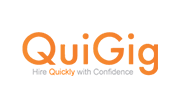Can’t make up your mind between Magento Vs Shopify? You’re not the only one who feels this way. These are two of the most well-known eCommerce platforms available today.
However, the critical question of “Which is the Best CMS Development Framework for 2021?” remains unsolved. The best way to answer this difficult question is to undertake a thorough assessment and analysis of these two major eCommerce platforms’ functionality, security, performance, number of users, customer reviews and ratings, and a variety of other important factors.
What is Magento?
Magento is currently one of the most widely used and sought-after E-commerce platforms among merchants all over the world. The Magento open-source version and the Magento commerce edition are the two editions available to merchants, depending on their business needs.
Magento is one of the most stable, flexible, and scalable open-source eCommerce platforms available. Magento provides a comprehensive set of tools for creating and managing your online business. It has its own set of advantages for eCommerce stores, just like any other platform.
Statistics on Magento usage around the world
The following are the most recent statistics about Magento’s worldwide usage:-
- On the internet, there are more than 250,000 Magento stores.
- It’s utilized by about 12% of all internet retailers.
- It is responsible for 1.2 percent of all internet traffic.
- Magento 2 is used by almost 11,000 of the total Magento stores.
- Magento has a 1.1 percent market share of all websites using a known content management system as of June 2021. (Source: w3techs).
- Every day, Magento is downloaded roughly 5,000 times.
Advantages of Magento

- Feature-rich & Powerful Platform:
Magento is a very strong platform that can respond to all of your needs, regardless of the number of products or orders on your online store. It’s a platform that can handle hundreds of products and keep the store running smoothly.
- Faster and easy Loading:
One of Magento 2’s most significant advantages is the website’s speed. The loading speed of a website is extremely important in the world of millennials. According to Google data, 50% of people quit websites that take more than 3 seconds to load.
- Highly Customized:
Magento eCommerce development services allow you to modify everything from the store’s look and feel to how you configure product categories. However, creating a fully customized store necessitates completely new code. The platform also allows you to select from a choice of payment, shipping, and language options to better serve your customers.
- Built for sale:
Although eCommerce capability is available as an add-on for most other CMS, Magento is unusual in that it was designed exclusively for sales. This implies it’s one of the most effective conversion-driving options available.
- SEO-Friendly:
With Magento Enterprise Edition, optimizing product pages and descriptions is a breeze. It generates SEO-friendly URLs because it was created with SEO in mind. Furthermore, Magento-powered websites are responsive, meaning your store will work on any device or browser.
- Cost-effective eCommerce Creation with Flexibility and Versatility:
Magento website development allows you to keep the codebase clean and performant while also ensuring greater compatibility with older versions. The most recent Magento 2 version includes a component-based module structure that allows developers to enable or disable components based on their needs.
Also Read – 11 Reasons Why Enterprises Need Magento Development Services.
What is Shopify good for?
Shopify is ideal for businesses that sell products or services that require little customization. You may use an advanced Shopify homepage section to sell a single product or a group of products depending on your business needs. Shopify is a simple platform for creating online stores. You pay a monthly charge to use it, and it may support both small and large businesses. As a result, your return on investment (ROI) rises, and your company’s revenue rises.
Statistics on Shopify usage around the world
Here are the most recent statistics about Shopify’s global usage:-
- The Shopify platform is used by 1.75 million merchants and 1.59 million live websites.
- Shopify Plus is currently available on 17, 683 domains – keep in mind that merchants can run businesses on numerous domains (11,788 distinct merchants already use Shopify Plus).
- Shopify stores now operate in 175 countries around the world.
- In 2020, about 42,200 partners introduced a merchant to Shopify, up 72% from 24,500 in 2019.
- In 2021, Shopify will power 20% of all e-commerce websites.
Advantages of using Shopify:-
- Powerful Marketing Tools:
Shopify also provides a marketing advantage as a comprehensive platform. The basic edition includes SEO functionality as well as extensive e-commerce statistics. Custom gift cards, discount coupons, store statistics, targeted email marketing, and more marketing options are available in addition to these.
- Exceptionally secure:
When it comes to security, one of the most significant barriers that eCommerce stores face is credibility. Despite the fact that customers are less concerned about online security than they were a decade ago, we still prefer to make payments to larger, well-known retailers rather than ones we’ve never heard of. Maintaining your store’s credibility is easier with Shopify.
- Mobile Responsiveness:
As the number of mobile shoppers is growing by the day, mobile responsiveness is critical to an e-commerce store’s success. The Shopify themes are mobile responsive, which means they can be used to create stores that are optimized for mobile devices. To administer the business, there are even free iPhone and Android apps available.
- Attractive online stores:
A Shopify eCommerce platform has a lot of advantages, one of which is the ability to construct attractive websites. You may create stunning eCommerce stores with Shopify by selecting a good website template/theme from a variety of alternatives. Many professionally developed website themes/templates are available on the platform, allowing users to establish distinctive and visually appealing online storefronts.
- Fully hosted eCommerce solution:
As a hosted solution, Shopify takes care of all website hosting requirements, as well as maintaining and updating the software to keep it up and running even when your website receives unusually high traffic. In other words, Shopify allows merchants to spend less time worrying about technology and more time focusing on running their business.
Also Read – Top Advantages of Using Shopify For eCommerce Web Development in 2021
Magento vs Shopify: A Feature Comparison

- Basic online store functionality – Both Shopify and Magento include basic store functionality that is relatively easy to use and maintain regularly. When compared to Magento, Shopify is much easier to set up and utilize. Basic features such as shopping carts, checkout modules, collections, and product pages are available in both Magento and Shopify. The biggest difference is that Magento includes a lot more intermediate and advanced functionalities. To gain more functionality out of Shopify, you’ll almost always need to acquire an app.
- SEO capabilities – Both platforms have extensive SEO capabilities to help you drive more organic traffic to your store via search engines, and they are almost neck-and-neck in terms of powerful SEO features and benefits, as detailed in this article: Choosing the Best E-commerce Platform for SEO Capabilities.
- Payment gateway options – Shopify has a significant advantage here, with support for over 70 payment gateways, but Magento is at a disadvantage with support for a far smaller number of gateways. Third-party add-ons, on the other hand, can be used to add more gateways to your Magento store. Shopify’s greatest flaw, in my opinion, is that it pushes you to use their built-in payment gateway. Shopify’s payment gateway has no transaction costs, however, third-party gateways charge fees.
- Themes and Templates – Both Shopify and Magento have a huge range of themes and templates that can be customized to match your items and preferences. While the quantity of free Shopify themes is substantially less than that of Magento Open Source, it should be noted that the free Shopify themes are often more modern than Magento Open Source themes
- Multilingual capabilities – Shopify does not directly provide full multilingual capabilities. Third-party/paid Shopify apps are available for constructing completely multilingual stores. Another option at Shopify is to custom code your theme so that it may be used in multiple languages. However, you’ll almost certainly need to hire a Shopify developer to finish the job. Magento has an advantage here as too, Hire Magento Developers for better multilingual support built-in.
- Customization options – Both systems include extensive customization options via an advanced interface that allows you to change the raw HTML/CSS code directly, giving you complete control over your store’s design and appearance.
Also Read – Magento vs WordPress vs Shopify: which CMS is good for small business?
Magento vs Shopify: Summery
To summarise the facts, Magento is a very adaptable, efficient solution that can handle heavy traffic while supporting a diverse range of products. It helps you to go worldwide right away and expand quickly. However, you’ll need to recruit a dedicated team or at the very least an in-house developer to build and maintain the store. You can’t own and develop a Magento store unless you know how to code. Furthermore, the rates are costly, particularly for an Adobe Commerce license, which is only feasible for large businesses and makes no sense for a small business.
The platform’s middle name, according to Shopify, must be user-friendly because launching a simple store with its drag-and-drop builder is simple. It has a lot of built-in sales and marketing tools, so you don’t have to make a lot of changes to your business if you’re in the small to mid-range market. As your company expands, you’ll want to modify your website even more, but major changes can only be made via applications, and the more you deploy, the greater the risk of ruining things permanently. Hire an eCommerce Development Company in the USA, for quick and error less development.
Also Read – Why Magento Is Considered As The Main CMS For eCommerce Development!
Conclusion –
In the competition of best Custom CMS development services between Shopify vs Magento, there is no clear winner. Decide based on your company’s demands and examine your decision to make a quick change before investing money.
ThinkStart Pvt Ltd is a leading eCommerce website development business that gives clients the best technology consultancy and development plans tailored to their specific requirements. We are a leading eCommerce development company in the USA, offering end-to-end Magento and Shopify development services. We offer a solution for both complicated and simple grade online businesses, backed by a qualified development team.





























